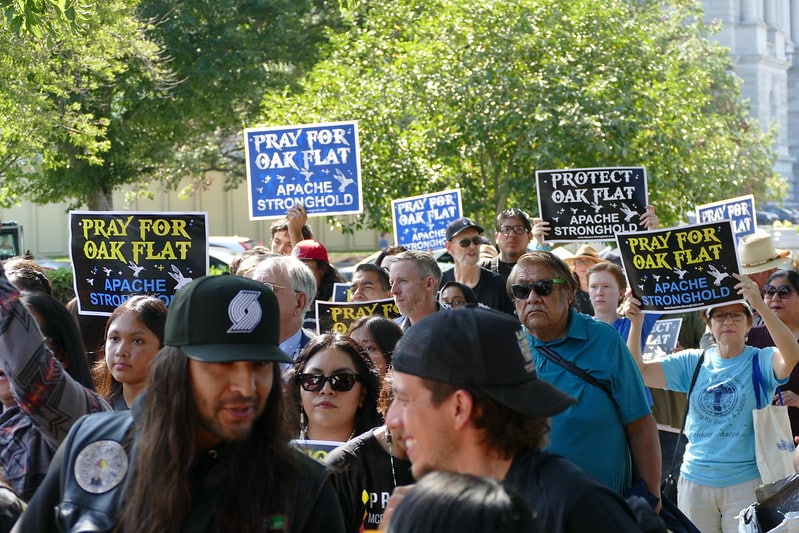UCC officers invite wider church to witness critical nature of faith in Middle East
 Two national officers of the United Church of Christ who spent two weeks in solidarity with partners in the Middle East in early May are inviting the wider church to witness for itself what is taking place in the region as part of the Global Ministries Middle East Initiative, which kicks off this summer.
Two national officers of the United Church of Christ who spent two weeks in solidarity with partners in the Middle East in early May are inviting the wider church to witness for itself what is taking place in the region as part of the Global Ministries Middle East Initiative, which kicks off this summer.
The Rev. J. Bennett Guess, executive minister of UCC Local Church Ministries, and the Rev. Jim Moos, executive minister of UCC Wider Church Ministries, were two of 13 people on the Middle East tour with Global Ministries—the shared overseas ministry of the UCC and the Christian Church (Disciples of Christ). One key reason Moos and Guess want members of the UCC to pay attention to what is happening in the Middle East is because Christianity in the region is at a crossroads.
“The critical nature of a variety of situations is intensified throughout the Middle East, from the rule of ISIS in Syria and Iraq, to millions of refugees from those countries fleeing to Jordan and Lebanon, the aftermath of the revolution in Egypt, and the Palestinian injustice is more pronounced,” Moos said. “Our concern for justice is not only for Palestinians, but also for Jewish people to live in peace as well.”
“Being part of this Global Ministries’ Middle East delegation cemented in me a first-hand experience, right here in the Middle East, of an Islamic society and people who are eager to talk with one another and with those of other religions, especially with us as Christians, about what they really believe as Muslims and how their dreams and hopes as people of faith really do not differ from us, nor the rest of humanity,” Guess said.
One of the key ways in which the Christian presence is preserved is through interfaith dialogue. Guess reflected on the amount of Christian-Muslim dialogue taking place, how Islamic organizations broadly and loudly condemn acts of terror, and observed that part of the problem is that those statements denouncing terrorism in the name of Islam—particularly by ISIS in Syria and Iraq—are not picked up by U.S. news outlets.
“While meeting together, dining together, and touring together, our Christian delegation had multiple opportunities to experience and talk with Muslims and Christians alike whose lives in the Middle East are spent in close proximity on a daily basis,” Guess added. “My first-hand experience here reveals much different realities than what we’re subjected to regularly in our news media.”
During the trip, the delegation visited about 20 partners in Jordan, Israel-Palestine, Egypt and Lebanon. The group learned about projects from education and vocational training for children and women, Christian institutions dealing with the rise of radical ideologies in the area and helping refugees, and peace advocates calling for an end to the Israeli occupation of the West Bank and Gaza.
Disciples of Christ leaders recognize the importance of witnessing the work of Global Ministries’ partners for peace in the region. The Rev. Ron Degges, president of the Division of Homeland Ministries, said that “meeting with real people and coming to be here with this direct experience is helpful in putting a face on the conflict.”
Peter Makari, Global Ministries area executive for the Middle East, told the delegation, “You help make [the work] real, and it encourages us in knowing the work is necessary, and that more and more people need to see this.”
Through the Middle East Initiative, which begins with the UCC’s General Synod and the DOC’s General Assembly, executives hope members of the wider church learn more about the work that needs to be done in the region, through an in intensive focus on different countries each month. The initiative will offer congregations and members from both denominations an opportunity to learn, advocate and witness with partners the issues the region faces. UCC and Disciples members can also gain a greater understanding and familiarity of the Middle East, and the legacy of Christian presence in the region during an 18-month period that concludes in December 2016.
Related News
UCC leaders join Apache Stronghold Day of Prayer at U.S. Supreme Court to protect sacred land
Following two months of pilgrimage across the country, Apache Stronghold members gathered on...
Read MoreGlobal Cleveland Welcoming Week podcast features UCC’s Andrew Long-Higgins
Global Cleveland Welcoming Week is underway and hosting a series of free events to celebrate...
Read MoreClimate Hope Action Assembly meets to update status of most recent campaign
The United Church of Christ Council for Climate Justice hosts Climate Action Assemblies every...
Read More


